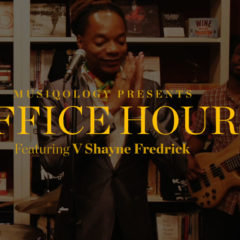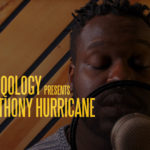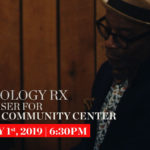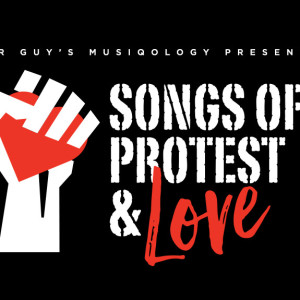Jazz legend Charlie Parker once outlined a three-step regimen for preparation in music. “You’ve got to learn your instrument. Then, you practice, practice, practice,” he said. “And then, when you finally get up there on the bandstand, forget all that and just wail.”
We’re somewhere between steps two and three on a weekday night at Turtle Studios in South Philly, where Guy Ramsey and the latest iteration of the MusiQology band hold their last practice session before a two-night run at South on Broad Street this weekend. The warm woods of the studio space, built in 1977, seem almost to set the audio levels themselves and give the vibe of a workshop in use.
Drummer Lucky Thompson—a Philadelphia institution in his own right—is behind the kit, laying the dynamic foundation. Bearded bassist Ken Pendergast’s notes hit hard and deep, deliberately but dexterously working his bass runs into something more than mere rhythm. Guitarist Richard Tucker rises to take a solo, with bent notes and flourishes accelerating, pushing his playing to the edges of the song’s tempo and his fingers’ ability. The horns of Tony “Big Cat” Smith and Matthew Clayton weave around each other, working in concert to build richness, texture, and sophistication.
And at the reigns of it all is Dr. Guy Ramsey himself, seated behind the electric piano. Since forming Dr. Guy’s MusiQology in 2003, Ramsey has written and developed contemplative arrangements that augment his rich playing, drawing emotion and thoughtfulness out of each note. Tonight, he’s the bandleader, assigning solos, making calls, and running the show.
Ramsey has convened this sextet for Songs of Protest and Love, the latest iteration of his ongoing program of multi-genre performances that attempt to address the contradictions and realities of a world in turmoil. It’s the band’s first show since a sold-out evening at the Annenberg Center at the University of Pennsylvania titled Everybody’s Protest Music this past fall. The concept takes its name from an essay by the important writer and thinker James Baldwin. “On the rare occasions when something opens within, and the music enters, what we mainly hear, or hear corroborated, are personal, private, vanishing evocations,” he wrote in “Everybody’s Protest Novel” in 1949. “But the man who creates the music is hearing something else, is dealing with the roar rising from the void and imposing order on it as it hits the air. What is evoked in him, then, is of another order, more terrible because it has no words, and triumphant, too, for that same reason. And his triumph, when he triumphs, is ours.”
With the band set to take the stage at South this weekend for three sets on Friday and three more on Saturday, they’re relaxed a few days prior to show time. A bar here or an ad-lib there needs to be negotiated, but it’s generally a group of experienced professionals who care more about the whole than their individual parts. If you’ve never spent time in a room with a band at work, imagine being in a room with a handful of people who speak a language all their own. There’s a fluency there—communicated with head nods, grunts, yells—and it’s a conversation where each voice works to find the most appropriate space and word to add to the space.
First are the instrumentals—Ramsey compositions and covers—that feature driving rhythms, clean tones, and boppy aesthetics. The rhythm section is composed but willing participants, with a cymbal splash from Thompson or a drawn-out bass note from Pendergast declaring their presence without feeling out of place or overstated. The horns and guitar are the melodic voices, playing the composed lead lines, but standing at the ready for a solo or chance at a crescendo.
Like Everybody’s Protest Music, Songs of Protest and Love is another multi-genre concept program, and Greg Corbin of Philly Youth Poetry Movement adds a poetic spoken-word recitation titled “Something in the Water” to the fray. Corbin riffs on liquid—from cold rain to waterborne illnesses to the slave ship, asking how we’ve gotten to a point where racism, sexism, and xenophobia persist. “Now YOU tell ME what’s terrorism?” he asks confrontationally.
Next up is Bridget Ramsey, Dr. Guy’s daughter and an emergent Philly performer in her own right. She’s diminutive in size, but a nimble vocalist who with her father has figured out new ways to swing classics like “Fever.” She has her own record due out soon, and her light, precise tone fits the dynamics of the band well.
Another vocalist, Abby Dobson, lends a more mature, soulful sound on a reworked cover of Roberta Flack’s “Compared to What.” The tune is stretched out by the band, which takes it for an improvisational spin that feels exploratory and deep, led by Smith and Clayton. Dobson and Ramsey work next on “If I Had a Hammer,” an improv-based, on-the-nose address to the program’s themes. It’s a song about working things out, built from the bottom up with Ramsey’s playing echoing through the concert grand piano as the other musicians learn the song on the fly and figure out where they fit into the conversation.
Practicing music is like any other craft—the repetition, the drilling, the muscle memory. With Friday night’s sets approaching, Dr. Guy’s MusiQology sounds ready, having checked off boxes one and two of Charlie Parker’s guide. Now it’s time to forget it all when they hit the stage.
Editor’s Note: The following piece captures Dr. Guy’s MusiQology in the days leading up to their successful run at South this past weekend. We hope it gives you an immersive look into the rehearsal experience, and it should be of interest to those who were able to attend the shows and those who weren’t.
John Vilanova is the Managing Editor of MusiQology. Follow him on Twitter @JohnVilanova.
Photography by Yilang Peng. Follow him on Instagram @lithium42.

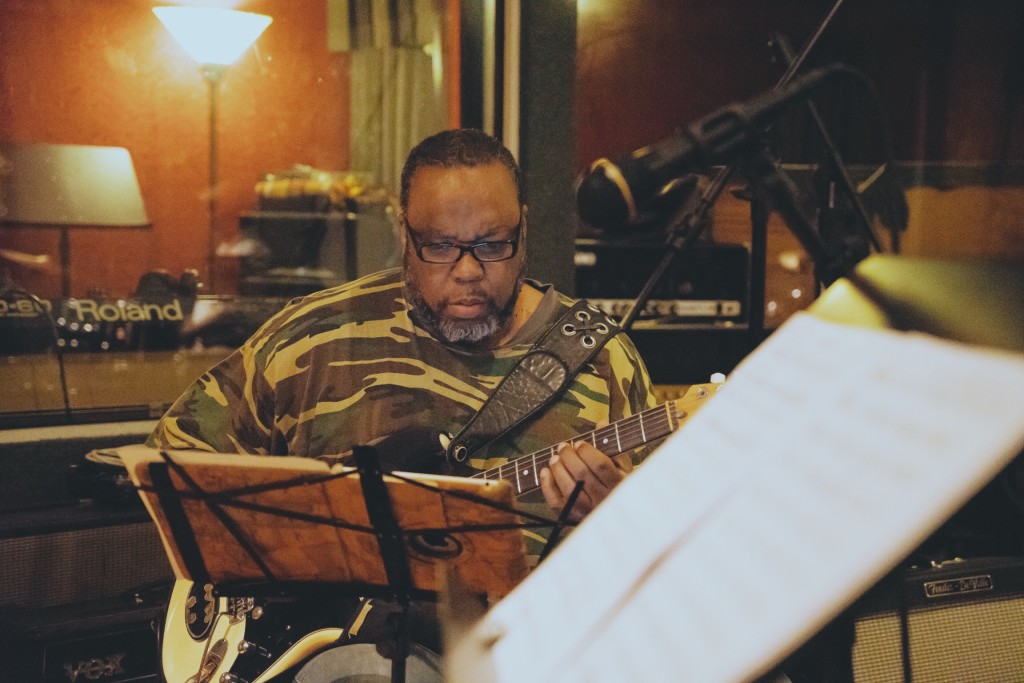
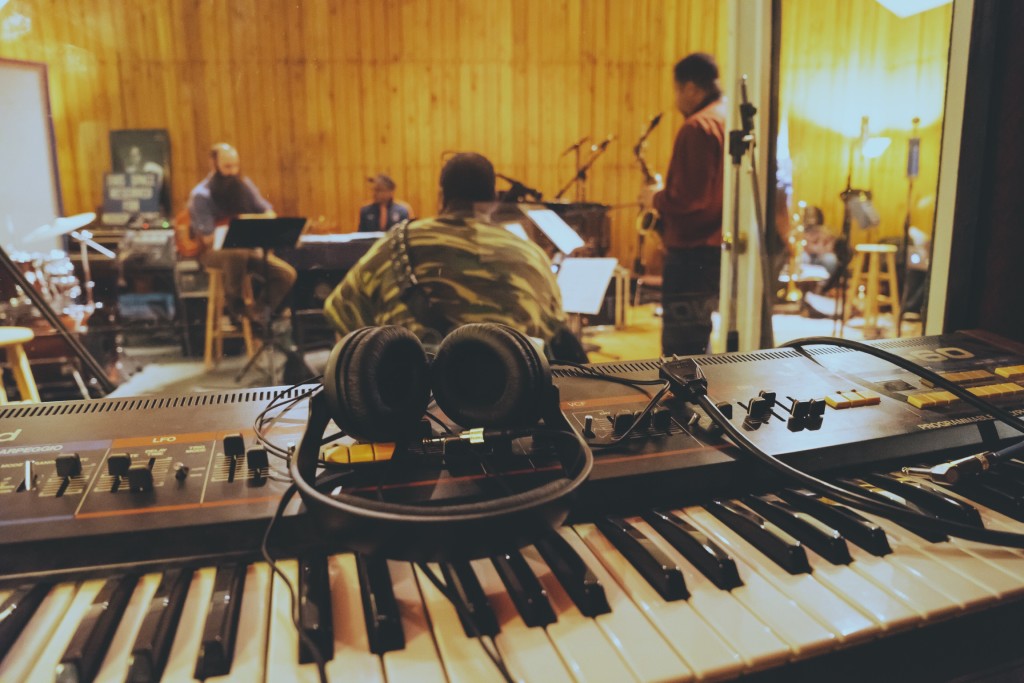
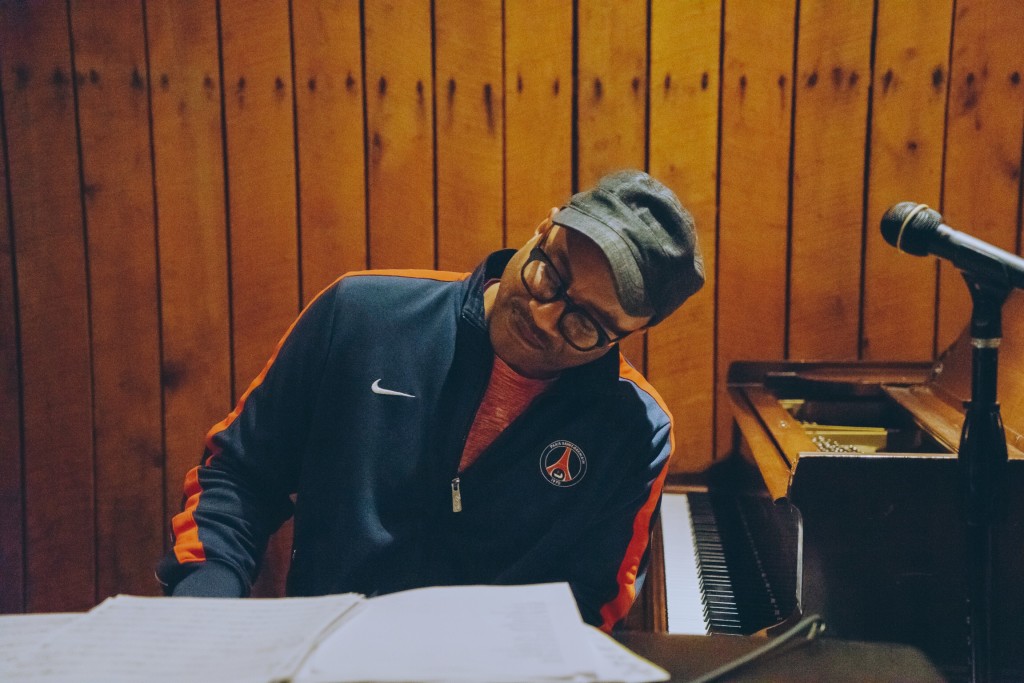
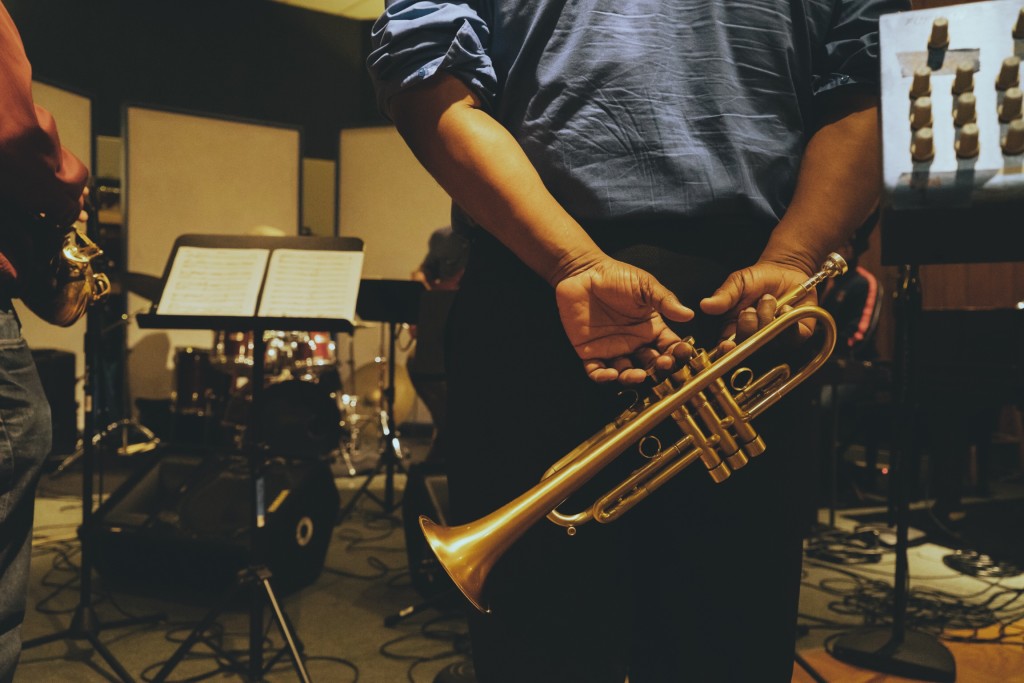
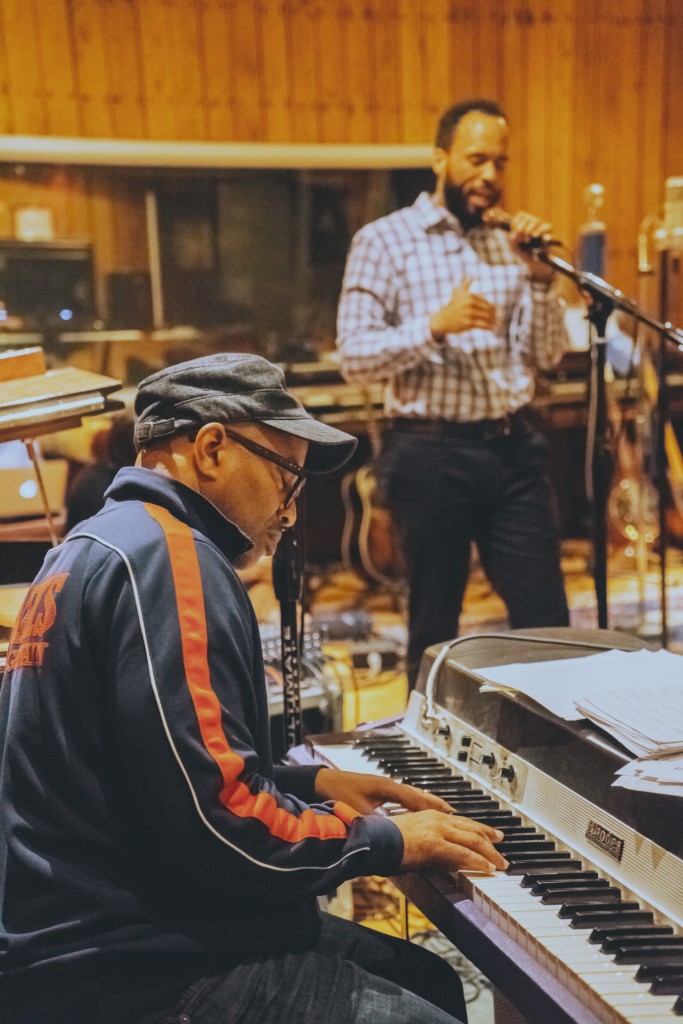
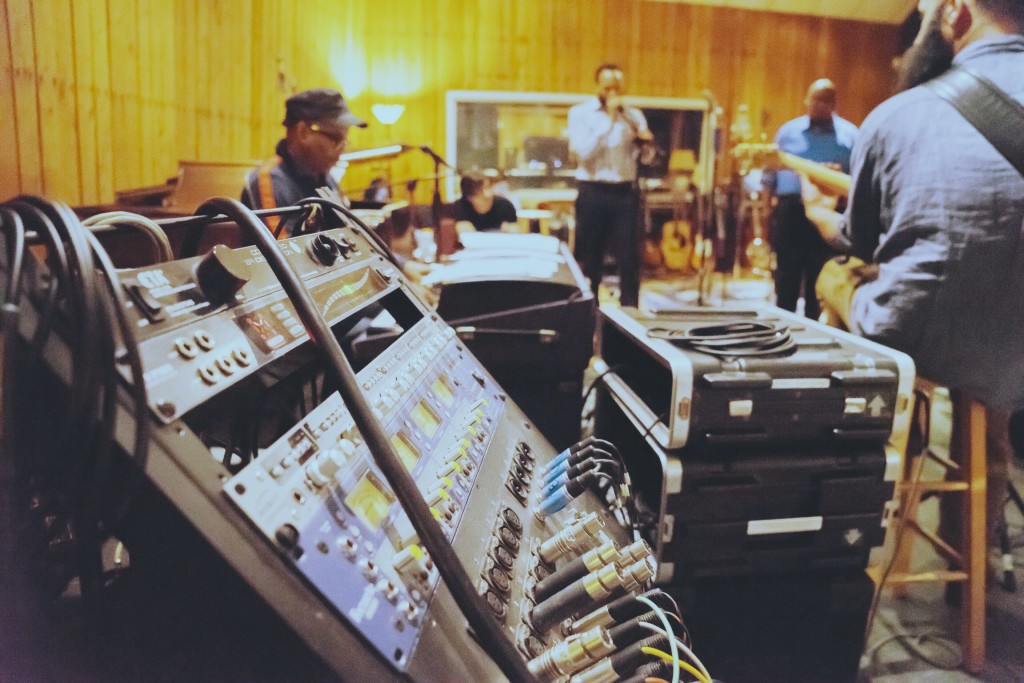
 Share On Facebook
Share On Facebook Tweet It
Tweet It


